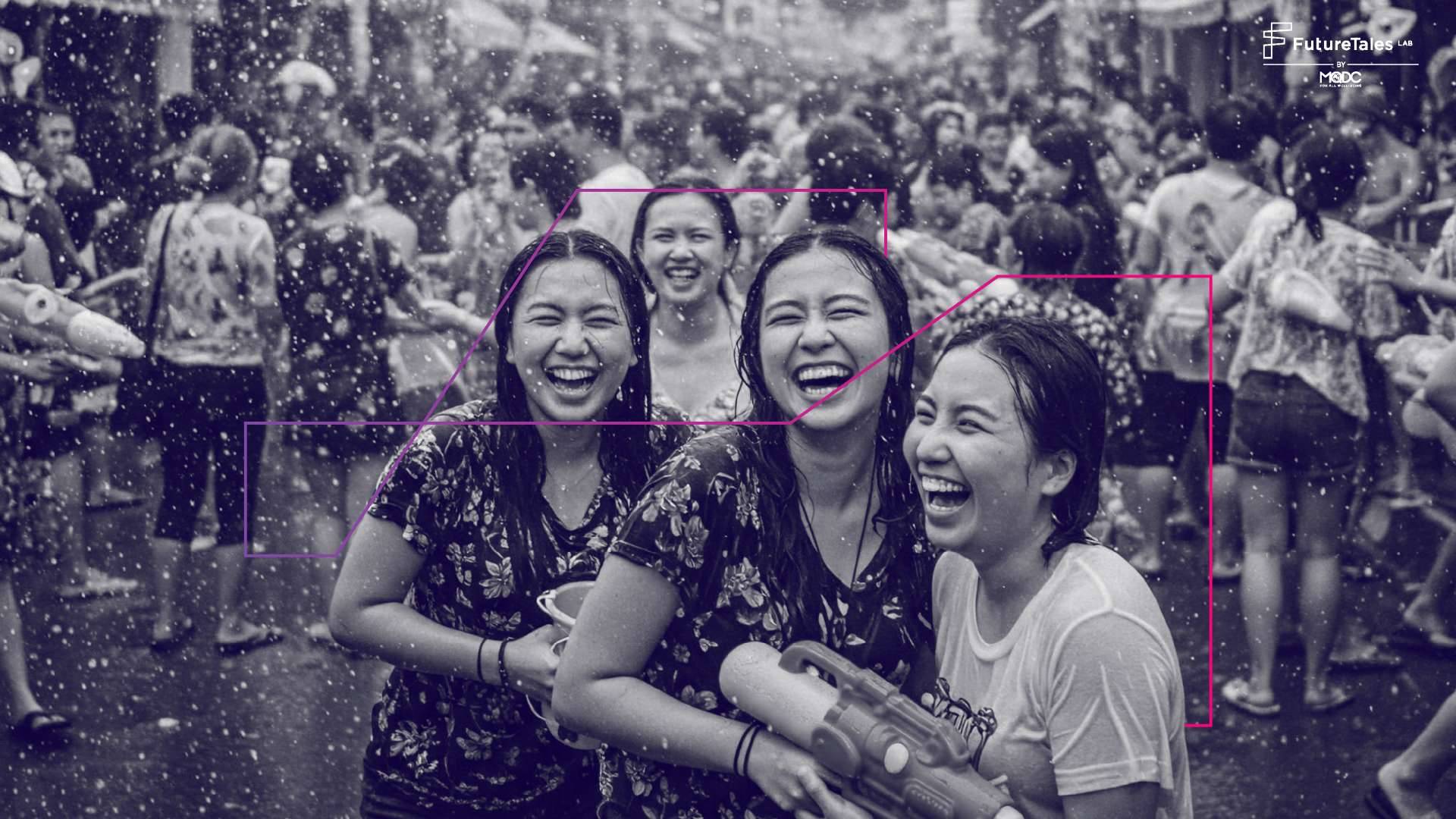
Reenvisioned Happiness
ARTICLES | Apr 04, 2023
Writer: Nuttawut Kulkaew
Editor: Wittaya Wonglor
What does it mean to live happily?
Social, technological, economic, environmental, and regulatory change are altering our views and beliefs. Traditional lifestyles once set the norm for happy or successful living, with marriage, family, assets, fame, or social acceptance. Living life at extremes (work hard, play hard) or doing a lot (You Only Live Once: YOLO) can influence us too. But such patterns may no longer apply in an age of rising individualism.
Faced with such social pressures, we may feel negative emotions and thoughts. We may feel forced to adapt to social values until we become unhappy. Toxic positivity or toxic productivity, for example, can impact on mental health. We can feel disappointed in ourselves, with declining self-worth. Anxiety and depression are now the most prevalent mental health problems worldwide. One in eight of the world's population suffers from mental and emotional disorders.
The increasing focus on mental health both in Thai society and around the world is gradually changing people's views of happy and successful living. Owning assets is losing ground to growth and flourishing from within oneself (self-growth) and self-acceptance, focused on relationships and living a meaningful life according to each individual’s definition. The self-improvement market is expected to grow from US$43.8 billion in 2022 to US$67 billion in 2030 at a compound annual growth rate of up to 5.5%.
Implications for the future:
- People will focus on self-development and creating individual identities. The education sector will prioritize learning to meet the needs of students along with current and future labor market demands.
- People will understand themselves to change the direction of the labor market, creating jobs and new economic directions with the passion economy.
- Freedom in managing our work and personal lives will make hybrid work the main workstyle in the future.
- Views of people's happy lives that do not correspond to economic, environmental, and regulatory realities will fuel dissatisfaction.
- Organizations must create a culture and environment that supports learning and personal growth. Organizational structure must be flexible enough to allow high potential workers to learn and fully realize their potential.
- More new business models focused on well-being and sustainability will emerge as awareness and attention to health and environmental dimensions increases.
Reference:
- The Relationship among Four Lifestyles of Workers amid the COVID-19 Pandemic (Work–Life Balance, YOLO, Minimal Life, and Staycation) and Organizational Effectiveness: With a Focus on Four Countries https://doi.org/10.3390/su142114059
- Labor-Leisure Choices in the Long Run: Is YOLO https://dx.doi.org/10.2139/ssrn.4283321
- GVR Report cover Personal Development Market Size, Share & Trends Analysis Report By Instrument (Books, e-Platforms, Personal Coaching/Training), By Focus Area, By Region, And Segment Forecasts, 2022 - 2030 https://www.grandviewresearch.com/industry-analysis/personal-development-market
- Mental disorders https://www.who.int/news-room/fact-sheets/detail/mental-disorders
- Happy Cultures? A Multilevel Model of Well-Being with Individual and Contextual Human Values https://doi.org/10.1007/s11205-021-02858-6
- Social Determinants of Mental Health: Where We Are and Where We Need to Go https://doi.org/10.1007%2Fs11920-018-0969-9
- Happiness and Life Satisfaction https://ourworldindata.org/happiness-and-life-satisfaction
- Socioeconomic inequality in psychological distress among older adults in India: a decomposition analysis https://doi.org/10.1186/s12888-021-03192-4
- “Feeling richer and happier? The effect of self-perceived economic welfare on life satisfaction: longitudinal evidence from a transition economy” https://doi.org/10.1007/s43546-023-00447-y
- Does less working time improve life satisfaction? Evidence from European Social Surveyhttps://doi.org/10.1186/s13561-022-00396-6
- Is life satisfaction higher for citizens engaged in political participation: Analysis based on the Chinese social survey https://doi.org/10.1371/journal.pone.0279436
- Does political participation help improve the life satisfaction of urban residents: Empirical evidence from China https://doi.org/10.1371/journal.pone.0273525
- The Association between Subjective Well-being and Regime Type across 78 countries: the moderating role of Political Trust https://doi.org/10.1007/s11482-022-10070-y
- Economic and Children’s Subjective Well-Being Indicators at the National Level in 35 Countries https://doi.org/10.1007/s12187-022-09918-4
Want to know more about us? Click https://web.facebook.com/FutureTalesLABbyMQDC or follow at https://www.blockdit.com/futuretaleslab











